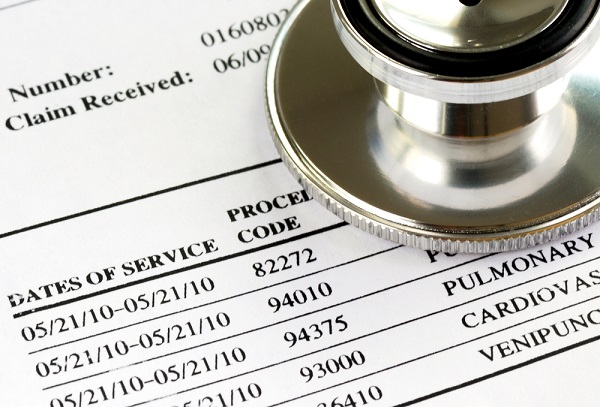 The top Republicanand Democrat on the House Ways and Means Committee have beenhesitant to embrace the surprise billing proposal and have beenexploring separate legislation. (Photo: Shutterstock)
The top Republicanand Democrat on the House Ways and Means Committee have beenhesitant to embrace the surprise billing proposal and have beenexploring separate legislation. (Photo: Shutterstock)
Providers, insurers and Democrats and Republicans can't agree ona solution to surprise medical bills.
|A bill approved unanimously by the House Energy and CommerceCommittee would require health care providers to notify patients atleast 24 hours before an elective treatment if the treatment isout-of-network.
|However, the top Republican and Democrat on the House Ways andMeans Committee, which has jurisdiction over taxes, have been hesitant to embrace the bill and havebeen exploring separate legislation.
|Related: Private equity firms in the crosshairs of latestsurprise billing inquiry
|Late last month, Ways and Means Chair Rep. Richard Neal,D-Mass., suggested convening a group of stakeholders from thehealth care industry to try to craft a compromise. However, theranking member on the committee, Rep. Kevin Brady, R-Tex., said hedidn't favor that approach.
|"I have yet to see how that would work anywhere in what we'retrying to achieve for ending surprise medical billing," Brady said,adding that he was open to an arbitration process thatwould allow providers to protest low reimbursements frominsurer
|Insurers support putting in place a system that would establishmedian benchmark rates for out-of-network charges. This wouldessentially cap what doctors could charge out-of-networkpatients.
|Meanwhile, doctors are warning the nation's lawmakers to notconfuse patient advocacy with giving more power to insurancecompanies. A recent letter to Congress signed by theAmerican Medical Association and scores of other state and nationalgroups representing different medical professions imploreslawmakers to be wary of unintended consequences.
|"We are highly concerned that the rate-setting provisions incurrent bills further shift marketplace leverage to health insurersat the expense of providers," says the letter. "As a consequence,this imbalance will likely lead to access problems for patientsseeking hospital-based care from on-call specialists, as well asprecipitate staffing shortages in rural areas and other underservedcommunities."
|Read more:
Complete your profile to continue reading and get FREE access to BenefitsPRO, part of your ALM digital membership.
Your access to unlimited BenefitsPRO content isn’t changing.
Once you are an ALM digital member, you’ll receive:
- Critical BenefitsPRO information including cutting edge post-reform success strategies, access to educational webcasts and videos, resources from industry leaders, and informative Newsletters.
- Exclusive discounts on ALM, BenefitsPRO magazine and BenefitsPRO.com events
- Access to other award-winning ALM websites including ThinkAdvisor.com and Law.com
Already have an account? Sign In
© 2024 ALM Global, LLC, All Rights Reserved. Request academic re-use from www.copyright.com. All other uses, submit a request to [email protected]. For more information visit Asset & Logo Licensing.








